Is Portuguese hard to learn? (4 Things to Consider)
Portuguese is a beautiful language, flowing with its own grace and rhythmic energy. But is Portuguese hard to learn?
Well, you might think you’re bad at languages. Or you might be scared of trying to learn another language on top of the ones you already have.
By the end of this article, you will know if Portuguese is hard or easy for you personally to learn. We’ll do that using 4 steps and teaching you a little more about language learning.
I know this because I speak Portuguese myself--it’s one of the 6 languages I currently speak, even though I spent most of my life thinking I was bad at languages. So I’ll help you step-by-step understand a bit more about how if I determine if any language is hard or easy to learn.
Before we get started--if you’re relearning Portuguese because you used to be able to speak or understand it when you were young, these factors will only partially apply to you. Make sure you check out our YouTube channel about relearning heritage languages for even more free resources to help you relearn your Portuguese!
Now let’s dive in!
1. How similar is Portuguese to English?
The first thing we need to consider is the language you’ve already successfully learned.
And if you’re reading this, you’ve already successfully learned English!
In English, you already know tens of thousands of words and can put sentences together without much of a problem.
So when you go to learn Portuguese, if you can understand the vocabulary and grammar of Portuguese by comparing it to the vocabulary and grammar of English, you’ll have a much easier time.
Let’s see how similar they might be.
Portuguese Vocabulary
Languages don’t just appear out of nowhere--they have histories and roots going as far back as 100,000 years ago.
The good news is that an absolute ton of English’s words come from Latin--the ancestor of Portuguese!
In fact, Latin was fused into English twice: first with the Roman invasion almost 2000 years ago and then around 1000 years ago with the Norman Conquest.
(And, well, again with the Renaissance and a few other smaller times depending on which English you speak but… let’s just get back to the big picture. There’s a lot of Latin kicking around in our English!)
So let’s see if some of these words seem familiar to you:
- invasão militar
- porco
- sal
- câmara
English got two great words, invasion and military, from its first brush with Latin through the Roman invasion. (And I bet you can guess why.)
Then, with the Norman invasion, it got some more refined ones from Latin via French. Pork and salt are two of them. (Lots of fancy new food words for medieval English!)
Camera? Taken from the Latin word for “dark chamber” (camera obscura) much, much more recently. We still share that word with the Portuguese word câmara which means both “camera” (the thing we take photos in) and “chamber” (it’s original meeting).
But of course, there are plenty of exceptions.
You’re very unlikely to guess the phrase “o meu filho” (“my son”) or “um país grande” (“a large country”).
But you still might be able to draw similarities between “meu” (my) or “grande” (grand, which we can also use to say large as in “grand piano”).
So as far as vocabulary goes, is Portuguese hard to learn?
It shouldn’t be too hard, although there will be plenty of stumbling blocks along the way.
Portuguese Grammar
So what about Portuguese grammar: will it be as easy to learn as Portuguese vocabulary?
If we go even farther back from Latin or Celtic languages, Portuguese and English share an even farther back ancestor: proto-Indoeuropean.
This ancient language is probably the coolest thing about historic linguistics.
I won’t go on a tangent, but proto-Indoeuropean gives us some pretty awesome key vocabulary words from way back in about 10,000 BCE.
(Don’t worry, we’ll get to Portuguese grammar difficulty soon. This tangent is worth it.)
Here is a list of a few words so you have an idea:
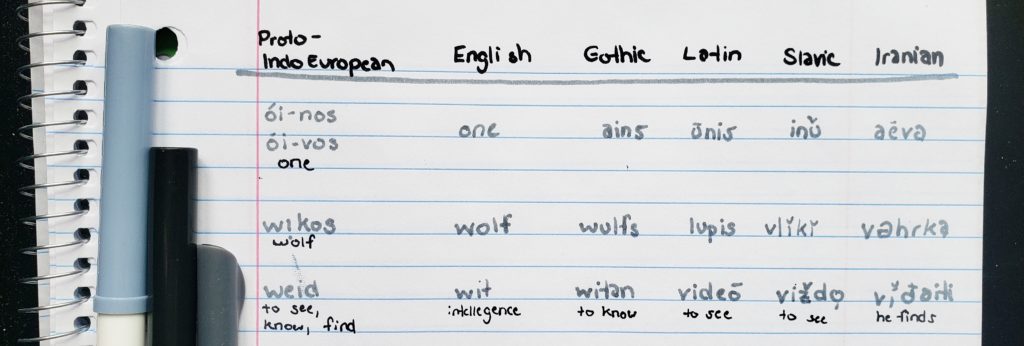
Just 3 of the thousands of words that English shares with Germanic languages, Latin languages, Slavic languages, and even languages as far away as Persian or Hindi!
It’s crazy to think that our words have ancient cousins in other languages going back tens of thousands of years.
So what does this have to do with Portuguese grammar?
The fact that we’ve maintained some words over tens of thousands of years is one thing. But we’ve also shared some similar grammar!
And English has a striking amount in common with Portuguese as far as grammar is concerned.
For example, in English we say the dog is brown.
Now take a look at the same sentence in Portuguese: o cachorro é marrom.
The word order is practically the same. Thanks, Indoeuropean ancestors!!
But, that’s not always the case.
The English sentence my brown dog is fast …
…changes to the Portuguese o meu cachorro marrom é rápido.
Not only do the object (dog) and it’s description (brown) change spots, but “my” changes to “the my“.
There are plenty of other examples.
I go becomes eu vou.
Very similar!
But a gente vai means we go…. and gente vai means people go.
Kind of weird, from the English point of view.
So overall, you can see that logic of Portuguese isn’t too bad--especially when compared to languages that are far removed from our common Indo-European ancestor.
So is Portuguese hard to learn if you already speak English?
As far as words and their structure to, it shouldn’t be too bad.
But let’s get into some other parts of the language (and language learning!)
2. How difficult is the pronunciation of Portuguese to learn?
There’s more to languages than just words and structures, but in terms of our question “is Portuguese hard to learn” we have one other big thing to consider.
Is the pronunciation of Portuguese easy to learn?
What is pronunciation?
According to the Cambridge dictionary, pronouncing something means:
[verb] to say a word or a letter in a particular way [source]
That’s a really vague definition… but it’s perfect for our exploration of Portuguese.
That’s because the “particular way” certain Portuguese letters sound are totally different than how they sound in English!
And Portuguese even has sounds that English doesn’t have at all!
But yeah, that means one more new thing to learn when learning Portuguese.
In fact, take a look at this video to hear how some words and names you can surely recognize in English change when said by a Brazilian Portuguese speaker (and one of my favorite Portuguese language YouTubers).
You can even throw on subtitles to try to catch the difference in words like “celebridades”, “inventores”, or “canal de YouTube”.
But Portuguese pronunciation hard to learn?
With a little bit of training, it’s not that bad!
Check out this mini-training video from my friend Rusty. Rusty was also one of my first Portuguese tutors and with her helping me, I was able to learn the prettiest and most unique sounds in her native language rather quickly.
(And no, she doesn’t know I’m going to post this. But check out her Instagram here if you’re looking for a Portuguese tutor and more great content.)
Here are a few quick things to know about Portuguese pronunciation:
- In total there are 3 new consonant sounds and 8 new vowel sounds in total.
- Nasal sounds will take you a bit to get used to. If you already speak French or Polish you know what you’re getting into, but English speakers will need a moment to adjust.
- The two R sounds can be tricky. I’ve been told my own misuse of them makes me sound a bit French when speaking!
- Some of these “new” sounds, such as the DI or DE sound that we’re told are foreign to English, can be found in various accents or dialects in American English. So you may have heard them from a friend or even use them yourself without knowing them!
But the good news? Even if you don’t totally get the hang of these, you will still largely be understood--even if you sometimes sound like a gringo.
Overall, the pronunciation in Portuguese can be hard to initially get the hang of. But once you get going, you should be able to skate through it.
3. Is Portuguese hard to find resources in?
So we’ve covered the language itself.
But the fact is that your app, teacher, textbook, class, or Portuguese resources can make or break your ability to learn Portuguese.
Before we get going in this section, we need to make sure that you’re aware that there are two very, very different types of Portuguese.
If you can imagine the differences between a thick New Yorker accent and a rural Scotland accent, you might begin to understand the differences between European and Brazilian Portuguese.
In fact, they’re so different you’ll have to pick one to study--some linguists even consider them different languages!
But don’t worry: you can always start studying one and then go study the other.

I make language memes on Instagram as @MultilingualMarissa
Resources for European Portuguese
Since the country is called Portugal, it must be the most popular type, right?
Honestly, resources in European Portuguese are hard to find. With a population of about 10 million (compared to Brazil’s nearly 210 million), the overwhelming majority of online content is made in Brazilian Portuguese.
And no, you can’t just use both. (I made that error and it made me nearly impossible for anyone to understand.)
Two resources I really enjoy are uTalk and the Michel Thomas series.
uTalk is an app with options for both types of Portuguese, and the Michel Thomas resource is exclusively for European Portuguese. (In fact, it’s one of the only ones I’ve ever run into that’s just for Europe!)
However, if European Portuguese is your goal, it’s going to be a bit harder to learn just because materials will be harder to find.
Resources for Brazilian Portuguese
I’m currently working on a huge list of Brazilian Portuguese learning resources for every level. There are an absolute ton, and once those lists are live I’ll link them here.
But until those are done, here are some tips for finding your own Brazilian Portuguese resources:
- Find music that you love. Brazilian music is amazing for working out to, taking a long drive to, or even dancing to in the kitchen while you’re cooking.
- Learn with YouTube and Netflix. This is an ambitious strategy for someone just starting out, but you can create your own at-home immersion environment.
- Use a variety of resources, not just apps.
- Practice reading with short stories or the news. One of my favorite Portuguese news sources is Folha de São Paulo, and once you get the hang of Portuguese it’s written at a low enough level to be incredibly engaging.
- Find a tutor or teacher. I already mentioned Rusty above, but there are plenty online.
Lucky for you, if you want to learn Brazilian Portuguese, finding good resources should be relatively easy.
4. What is your motivation to learn Portuguese?
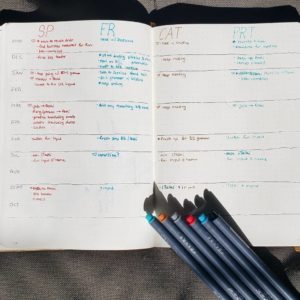
Even though I had everything set and planned out one year in advance… my 2019-2020 language learning plans lasted about as long as my motivation.
So as we’ve covered, compared to other languages Portuguese shouldn’t be that hard to learn… in theory.
But there’s one big secret in language learning: sustaining motivation is the hardest part of learning any language.
Right now you’re googling more information on if Portuguese is hard to learn because you already know that there’s a long road ahead.
But you’re still actively looking. You want to learn Portuguese.
What if Portuguese takes a few years to learn?
Will you always be this motivated?
Motivation comes and goes for all language learners--even the most experienced ones.
When I first started learning Portuguese I was so excited. I looked up Portuguese music I love, found Portuguese YouTubers, was reading short stories in it daily, and studying for an hour a day!
That’s because my biggest motivation in learning Portuguese was a trip to Brazil. I had already lived in Latin America for a number of years and, because I know myself, knew that making friends in bars and on the beaches of Brazil would be massively motivating.
Plus--I live in New England, and we have one of the biggest populations of Portuguese speakers in the world! Because I work with the public, I knew my Portuguese would come in handy all the time at work.
But, well, then coronavirus hit. My trip to Brazil has obviously been canceled (although I still hope to go one day) and my daily interactions with the public fell to zero.
Even though I love the Portuguese language, my motivation hit a brick wall. I put down Portuguese for an entire two months without even listening to a song. (And because of that, my language skills started to erode really, really quickly.)
This is because you can’t simply pick one reason to learn a language.
Because I know that one day I’ll make it back to Brazil and one day I’ll be back at my job, I don’t want to lose it entirely. So I had to find additional, new motivations to learn Portuguese.
Let’s go through two of my languages so you can see what your motivations could look like, and how it could affect your ability to learn Portuguese.
My motivations to learn Portuguese (in order) are:
- Travel to Brazil (one day!)
- Working with Portuguese and Brazilian clients where I live
- Discovering new Brazilian music and YouTubers
- Have fun in language exchanges, online or in person, with other Portuguese students
And finally, my motivations to learn Spanish (which is functionally my bilingual langauge)
- Continue speaking with monolingual Latinx friends who can’t speak English
- Travel more and…
- make new friends when I travel!
- Work with clients in Spanish and find new job opportunities
- Read more books, listen to more music, follow more meme pages
- Continue my work as an immigration rights activist
- Be a good neighbor when I’m in the US
- Move back to Mexico for another year or two
You can see how different and personal these reasons to learn a language are.
So what does this have to do with you?
If you can’t find at least 3-4 reasons to learn Portuguese, your motivation will fail you and Portuguese will not only become hard to learn but impossible.
And the more reasons you have to learn Portuguese, the more likely you are to stick with learning it.
The easier it will become!
So if your list of Portuguese motivations can hit 10 or more, you’ll find Portuguese exceedingly easy to learn and maintain.
So is Portuguese hard to learn?
Well, maybe a better question is “is Portuguese hard to learn for me?”
If you’ve answered these 4 questions for yourselves, you should have a pretty good idea.
Now, if you’re learning Portuguese for the first time I recommend my big master list of Portuguese learning resources, which was put together by Portuguese professors and polyglots based on what they love to use while learning Portuguese.
And if you’re relearning Portuguese because you spoke it at home as a child, don’t forget to subscribe to our email list or follow me on YouTube for more information about relearning Portuguese (or any language) as a heritage language!
If you have any questions or want me to look at any part of this article in more depth, let me know in the comments!
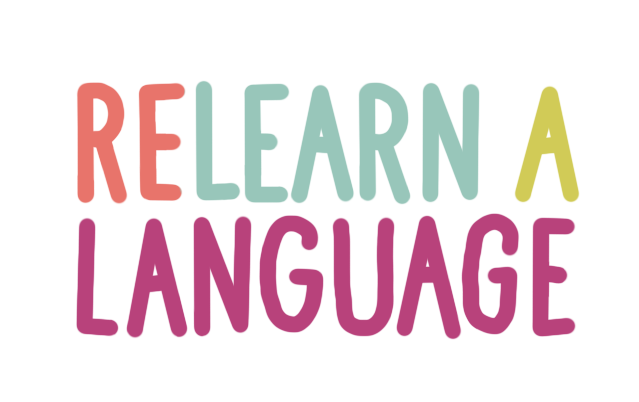
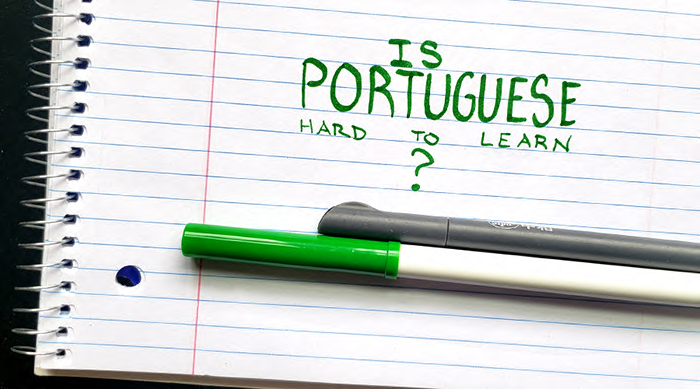
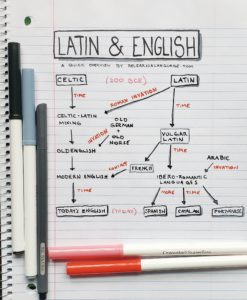



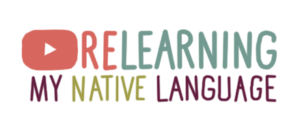
This is good so I want to learn Portuguese
You should! It’s an awesome language and not that hard once you get used to language learning 🙂